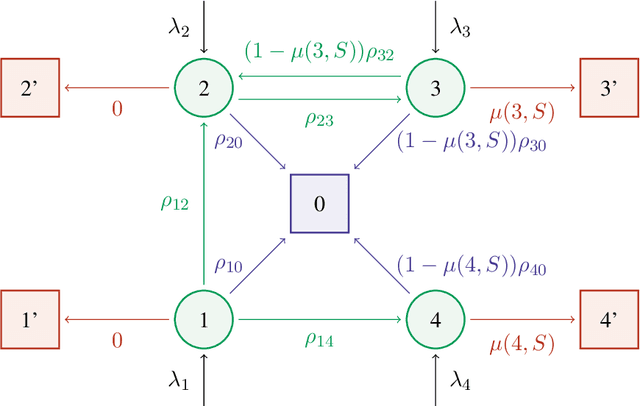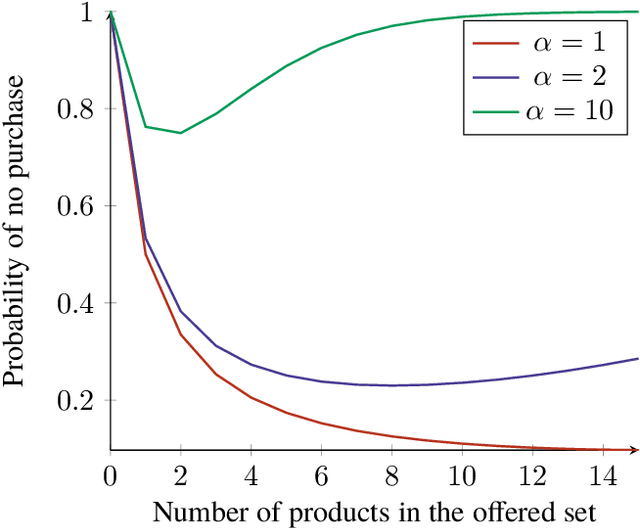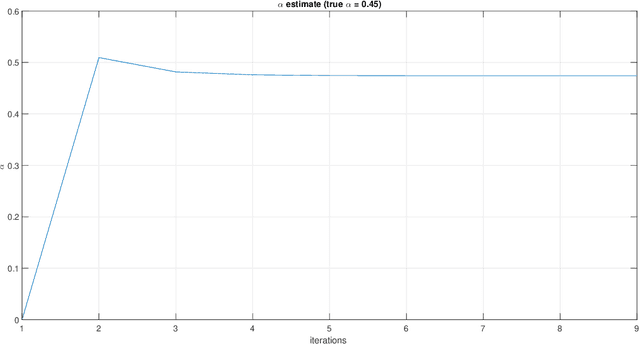A Generalized Markov Chain Model to Capture Dynamic Preferences and Choice Overload
Paper and Code
Nov 19, 2019


Assortment optimization is an important problem that arises in many practical applications such as retailing and online advertising where the goal is to find a subset of products from a universe of substitutable products that maximize a seller's expected revenue. The demand and the revenue depend on the substitution behavior of the customers that is captured by a choice model. One of the key challenges is to find the right model for the customer substitution behavior. Many parametric random utility based models have been considered in the literature to capture substitution. However, in all these models, the probability of purchase increases as we add more options to the assortment. This is not true in general and in many settings, the probability of purchase may decrease if we add more products to the assortment, referred to as the choice overload. In this paper we attempt to address these serious limitations and propose a generalization of the Markov chain based choice model considered in Blanchet et al. In particular, we handle dynamic preferences and the choice overload phenomenon using a Markovian comparison model that is a generalization of the Markovian substitution framework of Blanchet et al. The Markovian comparison framework allows us to implicitly model the search cost in the choice process and thereby, modeling both dynamic preferences as well as the choice overload phenomenon. We consider the assortment optimization problem for the special case of our generalized Markov chain model where the underlying Markov chain is rank-1 (this is a generalization of the Multinomial Logit model). We show that the assortment optimization problem under this model is NP-hard and present a fully polynomial-time approximation scheme (FPTAS) for this problem.
 Add to Chrome
Add to Chrome Add to Firefox
Add to Firefox Add to Edge
Add to Edge